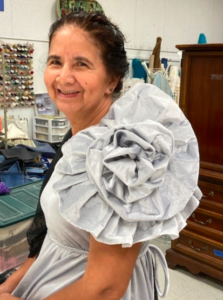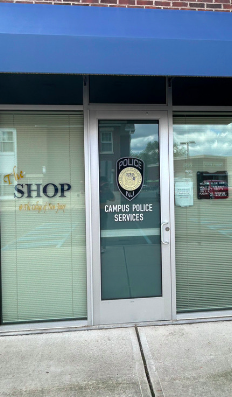By Neyssa Deriphonse
In a significant move aimed at expanding their outreach and enhancing support for the Trenton community, the Trenton Area Soup Kitchen (TASK) has recently rolled out a brand new food truck initiative. This innovative project aims to address the evolving needs of the community and provide vital food assistance to those who may face barriers in accessing traditional meal sites. The Streetlight spoke with Paul Jensen, who oversees the day-to-day operations at TASK, and Max Gatto, the Food Truck Coordinator, to delve deeper into the motivations behind this initiative and its potential impact on the community.
The decision to introduce the food truck stemmed from the noticeable changes in different communities throughout the city. “One of our goals was to get to those communities that can’t get to the locations that we physically have,” Jensen said, highlighting the organization’s commitment to reaching those in need.
Gatto’s motivation to lead this endeavor stemmed from his passion for food security.
“I was coming in as a volunteer and found out about the position opening,” he said, reflecting on his dedication to addressing hunger in the community.
The new food truck, which is distinct from TASK’s delivery vehicles, will serve freshly prepared meals directly to individuals in need. Jensen emphasized the truck’s aim to reduce the distance individuals need to travel for a meal. “If we could cut that walk in half or more, it can still make a big difference,” he said, underscoring the organization’s commitment to accessibility and alleviating food insecurity.
Gatto envisions the truck not only as a source of nourishment, but also as a platform for education and awareness about TASK’s comprehensive services.
“The first thing they’re going to think about is the food that we’re giving out, but there’s going to be a lot of education and spreading awareness,” he said, emphasizing the truck’s potential to foster a deeper understanding of the resources available to the community and empower individuals to access support beyond food assistance.
Regarding assessing the impact of this initiative, Jensen highlighted Gatto’s role in providing assistance in gathering feedback from the community.
“Max will be out there in the community. Rosa will also come out with him as a community meal site coordinator. She will be helpful to Max as far as establishing metrics… and get information to measure if we’re kind of impacting or making a difference with the truck,” he said, illustrating TASK’s commitment to continuous improvement and responsiveness to the evolving needs of the community.
The collaboration with other organizations, such as Arm and Arm and Capital Health Hospital, underscores TASK’s commitment to community partnerships.
“We’ve already started to work collaboratively with them (Arm and Arm), as well as with Capital Health as far as providing meals in areas of Trenton,” Jensen said.
Addressing concerns about cultural sensitivity, Paul stressed their dedication to accommodating diverse dietary needs.
“We try to keep a good mix of different meals so everybody feels like there is something for them to eat,” he said.
Moreover, TASK remains committed to ongoing dialogue with community members to ensure that their dietary preferences and requirements are taken into account.
“We welcome feedback from individuals and continuously strive to adapt our menu offerings to better meet the diverse needs of our community,” Jensen added, emphasizing the organization’s responsiveness to feedback and commitment to fostering a supportive and inclusive environment.
The food truck launched March 18. It represents a significant step forward in TASK’s mission to combat food insecurity and serve the Trenton community more effectively. With dedicated individuals like Jensen and Gatto at the helm, the initiative promises to make a tangible impact on the lives of those in need.
“Food is comfort for all cultures, it brings families together,” Jensen concluded.








